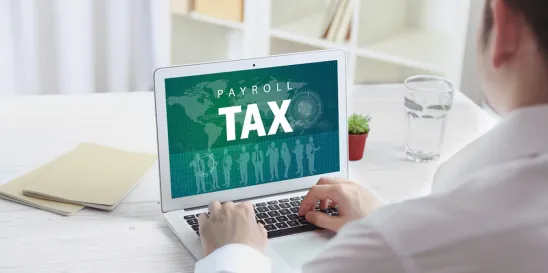The IRS recently issued Notice 2024-02— dubbed the “Grab Bag Notice”— which addresses multiple provisions in SECURE 2.0. The guidance is 81 pages long, comes in the form of frequently asked questions and answers, and speaks to a wide variety of topics on several provisions of SECURE 2.0 which either already are, or will soon become, effective. While the Grab Bag Notice addresses a varying array of topics, some highlights of interest to many plan sponsors include:
- Section 101. This provision of SECURE 2.0 requires most new plans to provide for automatic enrollment. At first blush, while this may not appear to impact sponsors of existing plans, the Grab Bag Notice devotes substantial attention to when plan mergers may cause an existing plan to lose its grandfathered status and become subject to these rules.
- Section 113. This provision of SECURE 2.0 is already effective. It allows employers to offer a de minimis financial incentive to employees to begin participating in the employer’s retirement plan. The Grab Bag Notice clarifies that the financial incentive will only be considered de minimis if the value is no more than $250 in total. The financial incentive is generally not available to existing participants, but may be given in installments (e.g., $125 for participating for 1 year, $125 for participating for 2+ years). The financial incentive may not be structured as a matching contribution, nor may it be funded by plan assets. The Grab Bag Notice also reminds plan sponsors that de minimis financial incentives will typically be taxable wages.
- Section 326. This provision of SECURE 2.0 provides that early distributions from retirement plans taken by terminally ill employees will not be subject to the typical 10% early distribution penalty tax. The Grab Bag Notice (1) clarifies which retirement plans this provision applies to, (2) indicates what must be included in a physician’s certification of the terminal illness, (3) states that there is no limit to the amount withdrawn under this provision, and (4) provides that an employee may (but is not required to) recontribute the amount withdrawn. Furthermore, the Grab Bag Notice confirms that the relief provided through this provision is limited to the tax treatment of such amounts and does not create a new permissible distributable event for deferral amounts subject to distribution restrictions in a 401(k) or 403(b) plan. For amounts not subject to these restrictions, permitting an early distribution for terminally ill participants is optional.
- Section 501. This provision of SECURE 2.0 addresses deadlines for adopting plan amendments. The Grab Bag Notice generally provides a one-year extension to the otherwise applicable date for adopting plan amendments (both required and optional) under Section 501 of SECURE 2.0 (which also includes amendments for the original SECURE Act, the CARES Act, and other legislation). These extensions also include anti-cutback relief. Amendments can be adopted retroactively by the deadlines listed below, so long as the plan was operating in accordance with the amendments as of the effective date outlined in the plan:
- Qualified plans
- Nongovernmental, not collectively bargained: December 31, 2026
- Collectively bargained: December 31, 2028
- Governmental plan: December 31, 2029
- 403(b) plans
- Not maintained by a public school: December 31, 2026
- Collectively bargained plan of tax-exempt 501(c)(3) organization: December 31, 2028
- Maintained by a public school: December 31, 2029
- Governmental 457(b) plans
- Later of December 31, 2029 or the first day of the first plan year beginning more than 180 days after the date of notification that the plan was administered inconsistently with section 457(b) of the Code
- Qualified plans
A plan sponsor can always adopt amendments to reflect optional provisions after those dates, but dates, but will not be entitled to the anti-cutback relief.
- Section 604. This provision of SECURE 2.0 is already effective, and it provides the option for employer contributions to be treated as Roth contributions. There had been significant questions in the industry regarding how the mechanics of such a feature would operate, and the Grab Bag Notice devotes many questions and answers to these implementation questions. The Grab Bag Notice confirms that this is an optional provision that employers can adopt. The Grab Bag Notice also discusses eligibility and vesting requirements if an employer does opt to include this provision, as well as how employer Roth contributions will be reported and taxed.
The Grab Bag Notice addresses several other provisions of SECURE 2.0, including:
- Section 102: Modification of Credit for Small Employer Pension Start-Up Costs
- Section 112: Military Spouse Retirement Plan Eligibility Credit for Small Employers
- Section 117: Contribution Limit for SIMPLE IRAs
- Section 332: Employers Allowed to Replace SIMPLE Retirement Accounts with Safe Harbor 401(k) Plans during a Year
- Section 348: Cash Balance Plans
- Section 350: Safe Harbor for Correction of Employee Elective Deferral Failures
- Section 601: SIMPLE and SEP Roth IRAs
This is a brief overview of some of the topics addressed in the Grab Bag Notice.






 />i
/>i

